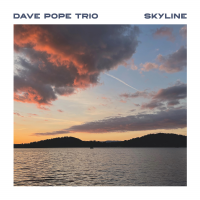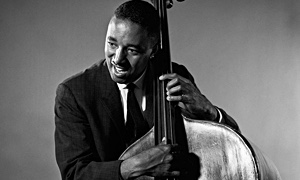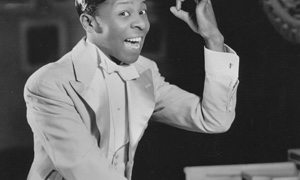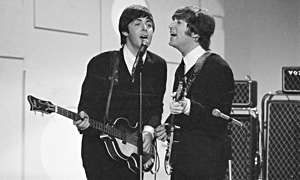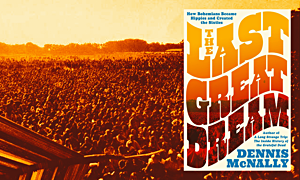Home » Jazz Articles » Book Review » Giant Steps: Diverse Journeys in British Jazz
Giant Steps: Diverse Journeys in British Jazz
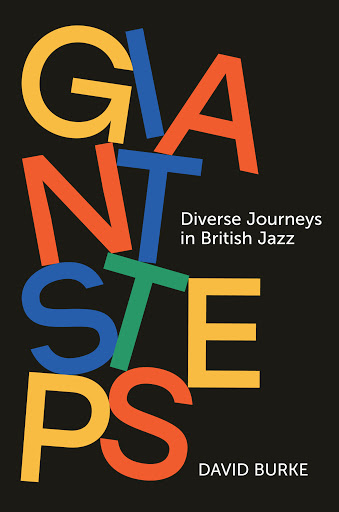 Giant Steps: Diverse Journeys in British Jazz
Giant Steps: Diverse Journeys in British Jazz David Burke
240 Pages
ISBN: 9781908755483
Desert Hearts
2021
David Burke's survey of British jazz musicians of colour does not begin promisingly. The first sentence of his Foreword reads: "Jazz is, of course, African-American in provenance, just as the greatest exponents of the form have been, and continue to be, African-American." No informed jazz fan would argue with "Jazz is, of course, African-American in provenance." It is good to see the fact expressed without qualification, for jazz is indisputably African-American in origin, and what is more, every one of its key evolutionary stages has been triggered by African-American musicians. It is the rest of the sentence with which one takes issue. Leaving aside the need for "most of" to be inserted before "the greatest exponents," what really rankles is the assertion that these greatest exponents "continue to be" African-American. In 2021, there are at least half-a-dozen musicians of colour in Britain—to be precise, in London—who can objectively be regarded as among the greatest exponents of jazz, and who are recognised as such not just in Britain, but increasingly in America, too (the number rises to at least a dozen if one includes non-black musicians).
After the Foreword, however, things improve dramatically. Giant Steps consists of twenty-five interviews with musicians of colour accompanied by thumbnail biographies. Burke is an empathic interviewer and he succeeds in drawing out informative personal and professional responses from his subjects. Perhaps the most prominent strand running through the interviews is the role identity politics is playing in shaping the new British jazz, much as it did African-American jazz in the 1960s and 1970s. The interviews also illuminate the experience of growing up as a person of colour in modern Britain and the attendant prejudices and disadvantages that have to be confronted, the depth of which are unknown to most non-black Britons.
Burke's twenty-five interviewees are:

Courtney Pine
saxophoneb.1964

Gary Crosby
bass, acousticb.1955

Gail Thompson
saxophone, baritoneb.1958
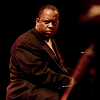
Julian Joseph
pianob.1966

Orphy Robinson
vibraphoneb.1960

Cleveland Watkiss
vocalsb.1959
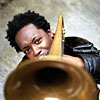
Dennis Rollins
tromboneb.1964
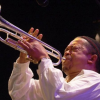
Claude Deppa
trumpet
Denys Baptiste
saxophoneb.1969

Mark Mondesir
drumsb.1964

Tony Kofi
saxophone, tenorb.1966

Soweto Kinch
saxophone
Arun Ghosh
clarinet
Rod Youngs
drums
Zoe Rahman
piano "
data-original-title="" title="">Peter Edwards,
"
data-original-title="" title="">Peter Edwards, 
Zara McFarlane
vocals
Camilla George
saxophone
Mark Kavuma
trumpet
Theon Cross
tuba
Shabaka Hutchings
woodwinds
Ashley Henry
pianob.1991
Shirley Tetteh
guitar, electric
Yazz Ahmed
trumpet
KT Reeder
tromboneAmong those conspicuous by their absence are

Nubya Garcia
saxophone
Moses Boyd
drums
Steve Williamson
saxophoneb.1964

Binker Golding
saxophone, tenor
Cassie Kinoshi
saxophoneb.1993

Jason Yarde
saxophone, alto
Neil Charles
bass, acoustic
Nikki Yeoh
pianoThe definitive story of British jazz, and the crucial role of musicians of colour within it, has still to be written, but Giant Steps is a useful contribution.
Tags
Comments
PREVIOUS / NEXT
Support All About Jazz
 All About Jazz has been a pillar of jazz since 1995, championing it as an art form and, more importantly, supporting the musicians who make it. Our enduring commitment has made "AAJ" one of the most culturally important websites of its kind, read by hundreds of thousands of fans, musicians and industry figures every month.
All About Jazz has been a pillar of jazz since 1995, championing it as an art form and, more importantly, supporting the musicians who make it. Our enduring commitment has made "AAJ" one of the most culturally important websites of its kind, read by hundreds of thousands of fans, musicians and industry figures every month.







 Buy Now
Buy Now

